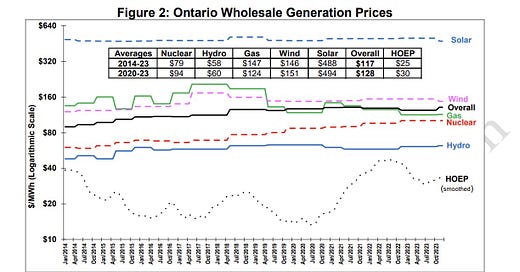With the National Regulator of South Africa rejecting Eskom’s application to grant privileged grid access to the government’s Renewable Energy Independent Power Providers (REIPP) program, did the regulator inadvertently hurt the the local wind industry?
The story is still evolving, but it would seem that the privileged grid access was an inherent subsidy. As business day reports “Wind power sector ‘deeply concerned’ after regulator rejects Eskom’s reservation request”.
They are now begging the government for intervention!
The National Energy Regulator of SA’s (Nersa) rejection of Eskom’s request to reserving grid capacity for certain renewable energy projects poses a potential risk for the wind energy sector, an industry body said on Monday.
The SA Wind Energy Association (Sawea) said it was “deeply concerned about the implications of this decision”, especially after the failure of bid window 6 of the government-backed Renewable Energy Independent Power Producer Procurement Programme (REIPPPP).
The association warned that without intervention by Eskom and Nersa, bid window 7 was likely to fail as well and, without viable solutions to grid challenges, public interest in the electricity market would eventually suffer.
"We've often heard that wind energy is 'the cheapest' or has 'become so affordable.' However, several skeptics have pointed out that the levelized cost of energy (LCOE) is not always what independent power producers (IPPs) receive. In the UK, for example, David Turver has argued that the contracts are somewhat dubious, calling offshore wind 'the new lie.'
Some critics claim this issue is unique to the UK. Yet, last week on my podcast, I spoke with Edgardo Sepulveda, a Canadian economist, who demonstrated that the wind industry in Canada is engaging in similar practices.
Only time will tell how this situation unfolds, but I suspect we may just be seeing the tip of the Global Wind Blade.






Why should any industry get privileged access? They should compete on market consumer demand. In this case the rule should be. Renewable energy, especially wind power has no natural commercial value simply because it cannot be delivered as and when power consumers need it. We buy and sell according to need and capacity. And the customer must decide the rules. If people like what they see they’ll buy it.
If they don't like that then make a rule for Eskom.to tell IPP's.
Wind and solar power are the intermittent freeloaders on the electricity grid. They are treated as if they’re generators, adding power to the grid, but instead they provide something the grid doesn’t need — power that can’t be guaranteed.
If you wish to sell power into the grid, you will have to guarantee a minimum level of supply and guarantee that minimum level of supply 24/7 at the specified power quality, and critically, that minimum level can be no lower than 80 per cent of the maximum amount of energy you will be permitted to sell into the grid. You must be able to provide the electricity as and when needed by Eskom.
Transmission lines to get power to the Grid is your responsibility and not that of tax-payers or consumers.
You must provide your own back-up in case of failure and not rely on the Tax-payer who funds Eskom.
No artificial levelling of the playing field will be tolerated for anyone. Not even Rupert or the Presidents Brother-in-Law.
Bribery comes with the death penalty of permanent banning as in Forever.